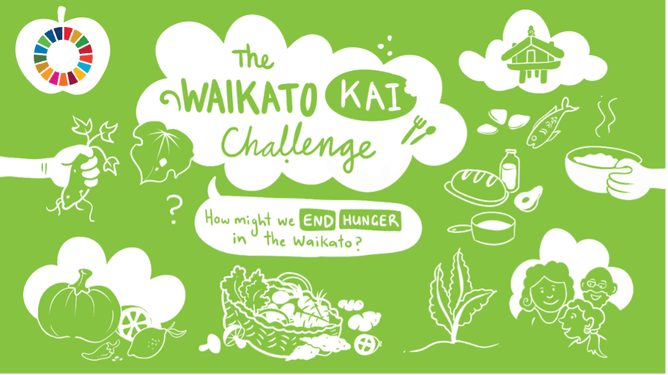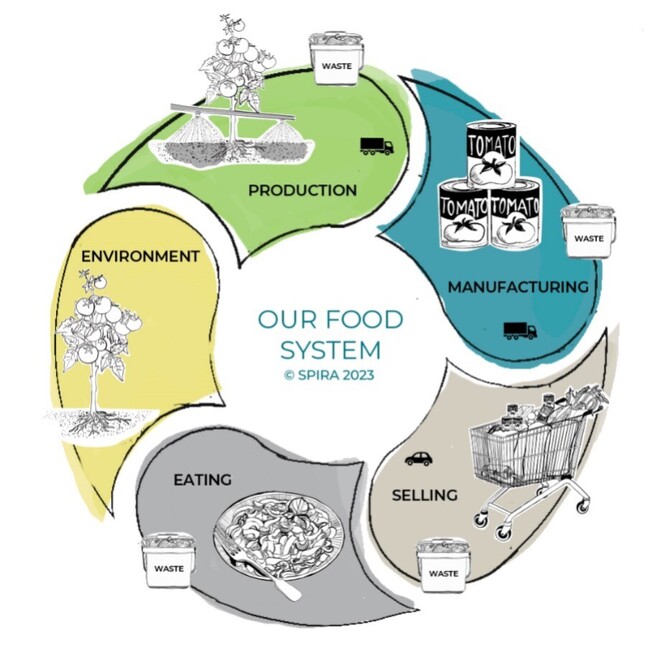An Update from Kai Challenge Project Activator: Amber Hammill
Thanks to the many people who took the time to share their work with me over the Winter, the Kai Challenge comes into the Spring with a path forward into the next phase of the work.
The big message from people working at the hungry end of the food system in the Waikato is that the need for their support is growing. This is echoed across the motu. A recent paper from Kore Hiakai shows that, amongst the services they’re in touch with, the number of food parcel they are distributing per month rose from 6,520 in July 2019 to 13,772 parcels in July 2023. People doing this work are clear that they want to move the conversation from crisis response to systems change.
‘Food systems’ is a term that might mean anything from growing and eating your own strawberries, to huge, global networks, and everything in between. Emily King of Spira suggests thinking of food systems in a circular way, and uses this diagram in her book, ReFood
© Spira 2023
Some food systems are working better than others to get nourishing food to people in a secure, sovereign way. To work together to adjust or dismantle the underperforming or maladjusted systems, or grow, develop or replicate the promising innovations, we need a shared understanding of what those are and who is involved in creating and maintaining them.
To support these conversations, the next stage of the Kai Challenge work is to work on describing some of those systems at play within the Waikato. By articulating the systems we are seeking to change, adjust, dismantle, grow, develop or replicate, we can progress these conversations with a shared knowledge of how they work, and who can make the necessary changes. These conversations need to include people working in and seeking access to every part of the food cycle.
The idea is not to exhaustively document every element of every part of every system, but to bring to light enough expressions of the systems we are currently using (or struggling to use) that we can start from a shared understanding of the present to help us along the way to the future in which
“Our children can thrive because none are hungry at school or cold at home. They can afford to participate in social, artistic, cultural and sporting activities.”
None of us lives outside food systems, so this conversation concerns all of us. Stay tuned for how to get involved in this descriptive work – it’s going to take all of us to make something we can use.
If you would like to be involved in the Kai Challenge, please contact Amber at: amber@waikatowellbeingproject.com



